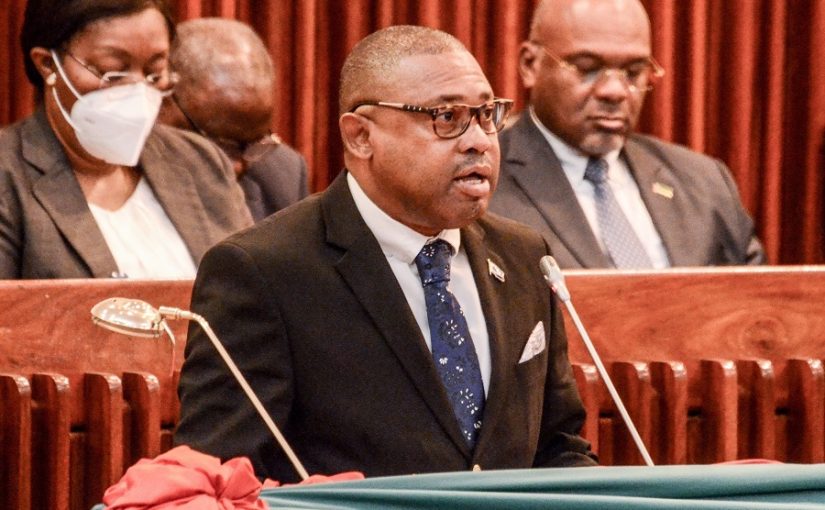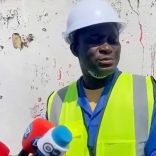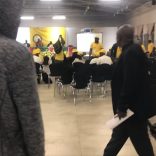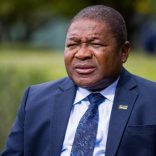Mozambique: Quelimane mayor handed four-month prison sentence for disobedience, commuted to a ...
Mozambique: National reconciliation ‘a mirage’ with partisan state – opposition

Photo: Notícias
Renamo, the main opposition party in Mozambique, and the MDM, the third-largest party, on Thursday said that the exclusion of opposition parties from state institutions and their partisan nature pose a threat to peace, and that national reconciliation remains a “mirage” 30 years after the civil war came to an end.
The peace symbolised by the General Peace Agreement signed in 1992 “may not be guaranteed as long as the fundamental values that make up the democratic rule of law do not prevail and are not respected by all,” said Viana Magalhães, leader of the Renamo parliamentary party, in an opening speech of the plenary sessions of parliament, which resumed on Thursday after a traditional pause.
In a speech marked by allusions to the 30th anniversary of the General Peace Agreement, which was on 4 October, the head of the largest opposition parliamentary party accused the governing Frelimo party of continuing to endanger political and social stability through its alleged intolerance, exclusion, partisanship of the state, electoral fraud and violation of fundamental rights and freedoms.
“In the real Mozambique, to be of the opposition is to sign your own sentence of exclusion and death,” charged Viana Magalhaes. “Whoever dares to be of the opposition has to accept being discriminated against and being deprived of their citizenship.”
The refusal to allow non-Frelimo members to enjoy economic and social rights, Magalhães argued, stokes discontent and puts young people in a situation of propensity to armed violence.
He pointed to the recruitment of young people by extremist groups in the province of Cabo Delgado, in northern Mozambique, as a result of such marginalisation.
The Renamo official accused Frelimo of manipulating electoral bodies to commit fraud in order to hold onto power and block political alternation.
The current controversy over the choice of a new director for the Technical Secretariat for Electoral Administration (STAE), Magalhães said, is an example of electoral bodies being shackled by Frelimo.
“Hatching electoral fraud” should be considered as something that is “an enemy of peace,” he said.
Magalhães also argued that the fight against armed groups in northern Mozambique should not only be carried on through military means, since it was necessary to tackle the social and economic causes behind the adherence of young people to armed groups.
For his part, the leader of the MDM in parliament, Lutero Simango, agreed that social, economic and political exclusion constituted a threat to peace.
“It is a mistake to think that peace is only the silencing of guns,” he said. “Peace presupposes well-being, the sharing of national wealth and a more inclusive and participatory democracy.”
The primacy of party affiliation in access to economic and professional opportunities in the state and in the private sector makes national reconciliation a mirage, he said.
Simango, too, addressed the issue of the violence in northern Mozambique, also advocating that more than a military solution was needed, because alone it can only be ineffective.
“Conflicts of a cyclical military nature should be solved from the root and with knowledge of the causes and motivations,” he said. “Military solutions to domestic problems, ignoring their causes and motivations, is simply ‘covering the sun with a sieve’.”
The debate in parliament continues on Friday, with a debate on the Single Salary Table (TSU) – an instrument with which the Government intends to harmonise the criteria for calculating salaries in the civil service and correct imbalances in the sector’s remuneration structure.
Parliament’s agenda also includes, between now and December, a debate on the draft media and broadcasting law, revision of the law on the legal regime of foreign citizens in Mozambique, debate on the foreign exchange law, and legislation to establish legal rules for bank accounts. The president’s address on the state of the nation, information from the Ombudsman, sessions in which questions are to be put to the government, and the debate of the Economic and Social Plan and the 2023 State Budget are also scheduled.
Mozambique’s parliament is dominated by Frelimo, with 184 of the 250 seats – a majority of more than two-thirds that enables it to take steps such as amending the constitution.
Renamo has 60 seats and the MDM six.













Leave a Reply
Be the First to Comment!
You must be logged in to post a comment.
You must be logged in to post a comment.